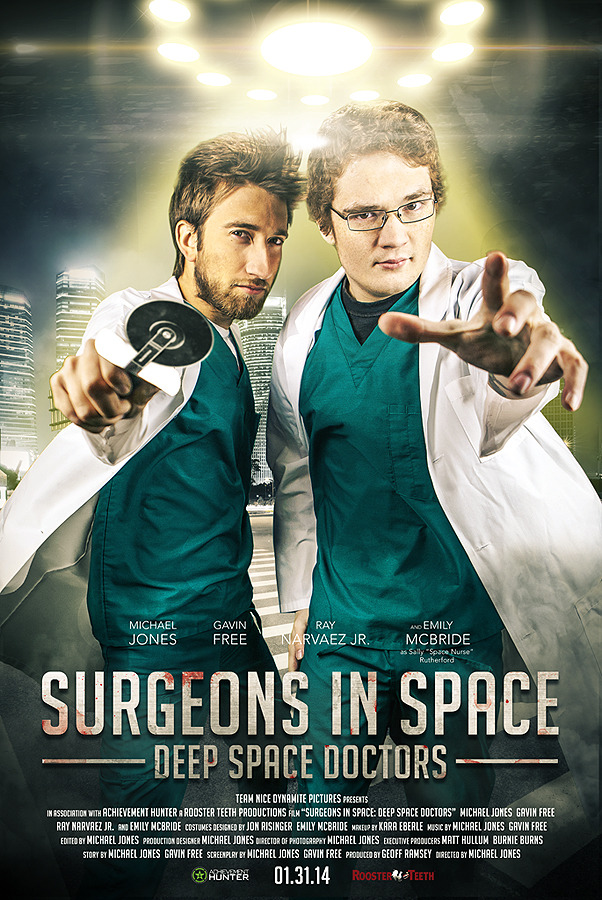Over 20 astronauts in NASA's history who have participated in space missions have also been doctors. Doctors are important on these missions for several reasons. First, NASA conducts biomedical research in space to better understand a range of phenomena from muscle wasting diseases to gene expression to cell growth in microgravity. A physician's perspective (especially if that person also has experience with basic research) can be important in the execution and interpretation of the data generated. Second, space is not exactly the ideal environment for the human body, but it's vital that astronauts stay healthy. While I'm sure all astronauts undergo training and understand what can happen to their bodies when they're not on Earth, this is mostly in the intellectual realm of the doctors. Finally, people can get sick during space missions. Even a minor ailment deserves attention so that all of the crew can be working at peak efficiency.
 |
| Routine check-ups....in space! |
However, NASA doesn't require that a doctor be on each mission. Instead, the rest of the crew receives some basic medical training, and in all of the missions that have been attempted so far, contact with physicians on the ground and early return have both been available options--although early return has never been necessary. This makes a lot of sense for shorter trips that are close to the Earth, such as trips to the ISS (which is much, much closer than the Moon). If NASA plans any longer trips, however, doctors will become much more important. First of all, there will be no opportunity to turn around if a crew member needs an appendectomy halfway to Mars, and communication with Earth can be spotty or delayed too. Secondly, longer periods of space travel mean more intense physical effects than shorter flights. Muscle decay, cardiac shrinkage, and weakened bones become even more of a problem for someone in space for a couple of years than someone in space for a couple of months.
In some ways, it doesn't make sense for there to be only one doctor on extended missions--what if something happens to the only doctor in the first half of the mission? While the vehicle and its equipment are expensive (like really expensive), the astronauts themselves arguably make up the bulk of the investment, so their health and physical integrity should be just as double- and triple- and quadruple-ensured as anything else on board. Obviously the number of doctors in a crew depends in part on the crew's size--you probably don't need five physicians for a six-person mission--but all other things being equal, more doctors seems better to me. And I'm not just saying that for the sake of my own astronaut application when the time comes.
 |
| I have no idea what this is, but it will be me someday. |
Sources
https://en.wikipedia.org/wiki/NASA_Astronaut_Group_21
http://www.nasa.gov/astronauts/2013astroclass.html
http://www.nasa.gov/astronauts/2013_morgan.html
http://www.amednews.com/article/20100315/profession/303159950/4/
https://www.nasa.gov/ames/research/space-biosciences/rodent-research-3-spacex-8
https://www.nasa.gov/ames/research/space-biosciences/wetlab-2-spacex-8
http://www.spacepolicyonline.com/news/nasa-ig-iss-cost-u-s-75-billion-so-far-estimates-of-future-costs-overly-optimistic
http://36.media.tumblr.com/73a703b55ba830d342d5f3086a84c12e/tumblr_n1vhkqBWce1rfn5l1o1_1280.jpg
http://media2.s-nbcnews.com/j/msnbc/Components/Photos/060217/060217_SL2-02-157_hmed_1p.grid-6x2.jpg
I read and graded this week a while ago but realized that I forgot to leave remarks. Everything looked good!
ReplyDelete